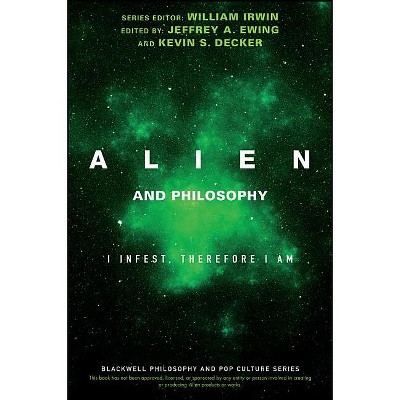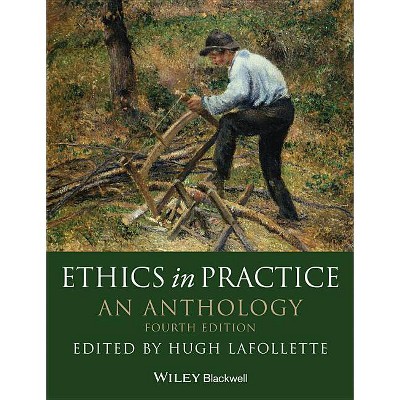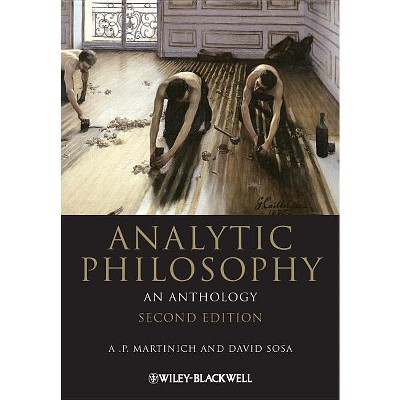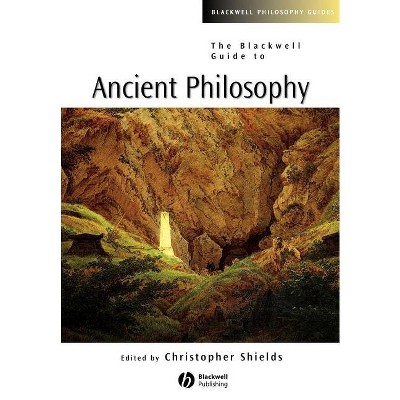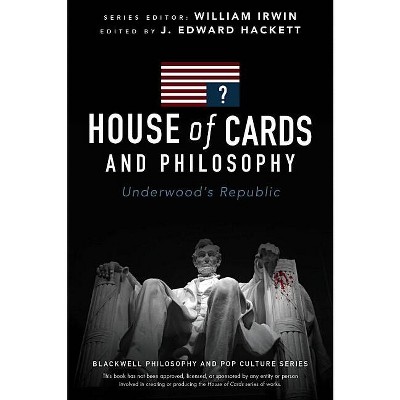As Free and as Just as Possible - (Blackwell Public Philosophy) by Jeffrey Reiman (Paperback)

About this item
Highlights
- Grafting the Marxian idea that private property is coercive onto the liberal imperative of individual liberty, this new thesis from one of America's foremost intellectuals conceives a revised definition of justice that recognizes the harm inflicted by capitalism's hidden coercive structures.
- About the Author: Jeffrey Reiman is the William Fraser McDowell Professor of Philosophy at American University in Washington, DC.
- 256 Pages
- Philosophy, Political
- Series Name: Blackwell Public Philosophy
Description
Book Synopsis
Grafting the Marxian idea that private property is coercive onto the liberal imperative of individual liberty, this new thesis from one of America's foremost intellectuals conceives a revised definition of justice that recognizes the harm inflicted by capitalism's hidden coercive structures.- Maps a new frontier in moral philosophy and political theory
- Distills a new concept of justice that recognizes the iniquities of capitalism
- Synthesis of elements of Marxism and Liberalism will interest readers in both camps
- Direct and jargon-free style opens these complex ideas to a wide readership
From the Back Cover
As Free and as Just as Possible presents and defends Marxian Liberalism, a theory of justice that results from combining certain liberal beliefs, chiefly that people have a natural right to liberty understood as a right to be free from unwanted coercion, with certain Marxian beliefs, chiefly that private property is coercive. This combination implies that on liberal grounds, to be justified, private property must be consented to by everyone.A Lockean defense of the right to liberty is presented and, to determine what sort of private property would be consented to by everyone, a decision procedure modeled on Rawls's "original position" is deployed, with this difference: the knowledge that parties in this original position possess certain Marxian beliefs, among them that capitalism is the most powerful engine in history for increasing productivity, and thus for providing people with the material conditions of real freedom. Parties in this Marxian-Liberal original position will agree to private property limited by an egalitarian requirement: namely, a version of Rawls's difference principle. Marxian Liberalism takes justice to have a timeless form, but historically changing content, and calls for a highly egalitarian capitalism that is as free and as just as historically possible.
This major new work performs a genuine philosophical service. While some may deem the combination of Marxism and liberalism to be either exotic or impossible, many others will be glad to see liberalism's devotion to individual freedom leavened with structures that redress the economic and political inequalities of capitalism, and to see Marx's insights combined with a commitment to liberty.
Review Quotes
"In the preface, Reiman says he hopes the book will be of interest to both the educated layperson and the professional philosopher; in this respect it succeeds admirably. Written in clear and lucid prose, the book will be a valuable resource for students looking for an introduction to Marx and Rawls's thought on freedom, justice and capitalism." (Res Publica, 1 March 2013)
"In this way, Reiman's exciting book is a new and timely contribution for us today." (Marx And Philosophy Review of Books, 2 June 2014)
"It is likely that Reiman has good replies to these critical comments. In any case, independently of whether his core argument succeeds or falters, the distinctions, concepts, and arguments Reiman develops in As Free and as Just as Possibleare of great significance. They need to be studied and discussed by all those interested in Marx and justice, the real conditions of freedom, Rawls, and post-capitalism." (Social Theory and Practice, 1 October 2013)
"As Free and as Just as Possible offers a very accessible introduction to two major political thinkers, John Rawls and Karl Marx, to the relation between their respective theories and the work of John Locke and Immanuel Kant, as well as more recent theories of Jan Narveson and G.A. Cohen." (Krisis, 1 December 2013)
"Written in clear and lucid prose, the book will be a valuable resource for students looking for an introduction to Marx and Rawls's thought on freedom, justice and capitalism. But specialists will also find much of interest here, too, since as we have seen the book is not just an overview of Marx and Rawls's thought on these issues, but an imaginative attempt to fuse their insights to create a new theory of social justice. Whether or not one is fully convinced by that final synthesis, Reiman deserves credit for attempting to show that, while the idea of combining liberal and socialist has a history, it may still have a future." (Res Publica, 8 October 2013)
"This is an important effort to reinvigorate modern liberalism by applying essential insights from a fading Marxism. Summing Up: Highly recommended. General readers, graduate students, and research faculty." (Choice, 1 September 2013)
About the Author
Jeffrey Reiman is the William Fraser McDowell Professor of Philosophy at American University in Washington, DC. A central figure in numerous political and philosophical debates in America, including those on abortion and criminal justice, he is the author of In Defense of Political Philosophy (1972), Justice and Modern Moral Philosophy (1990), Critical Moral Liberalism: Theory and Practice (1997), The Death Penalty: For and Against (with Louis Pojman, 1998), Abortion and the Ways We Value Human Life (1999), The Rich Get Richer and the Poor Get Prison: Ideology, Class, and Criminal Justice, 10th ed. (with Paul Leighton, 2013), and more than a hundred articles on philosophy and criminal justice.Shipping details
Return details
Trending Poetry







